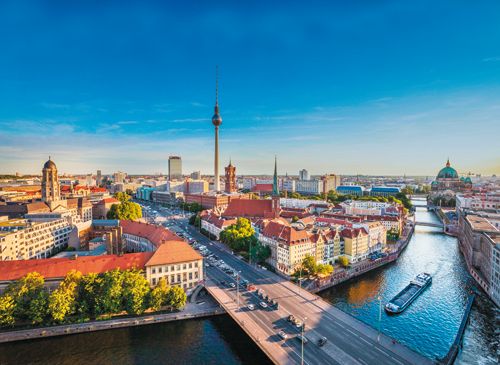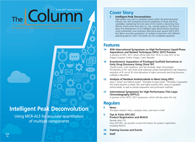International Symposium for High Performance Thin-Layer Chromatography (HPTLC 2017)
A preview of the HPTLC 2017 symposium, which will take place this July.
Photo Credit: canadastock/Shutterstock.com

A preview of the HPTLC 2017 symposium, which will take place this July.
The International Symposium for High-Performance Thin-Layer Chromatography (HPTLC 2017) will take place in Berlin, Germany, 4–8 July 2017.
Progress and innovation are rarely found on the well-trodden path of a known scientific routine, according to the organizers, and inspiration comes from the cross-pollination of ideas from multiple fields and institutions. It is this spirit of science that the organizers seek to evoke at HPTLC 2017. Visitors can see firsthand the continuing evolution of highâperformance thin-layer chromatography into a modern and powerful tool with broad applicability throughout laboratory science.
If you are interested in what HPTLC could do for your laboratory, or simply want to update your understanding of methods using this technique, then HPTLC 2017 is the venue for you. The symposium showcases the most upâtoâdate research methods with the latest proven applications, highlighting recent instrumental advances as well as advances in automation and data analysis. A series of advanced training courses in cutting-edge techniques are also available, along with a social programme to promote networking and contact with thought leaders.
Food chemists can obtain 30 ZFL credit points when visiting HPTLC 2017. The AK Separation Science of the GDCh division Analytical Chemistry offers funding for poster presenters. Lastâminute poster presentations will still be accepted and included in the book of abstracts.
E-mail:info@hptlc.comWebsite:www.hptlc.com

Thermodynamic Insights into Organic Solvent Extraction for Chemical Analysis of Medical Devices
April 16th 2025A new study, published by a researcher from Chemical Characterization Solutions in Minnesota, explored a new approach for sample preparation for the chemical characterization of medical devices.
Sorbonne Researchers Develop Miniaturized GC Detector for VOC Analysis
April 16th 2025A team of scientists from the Paris university developed and optimized MAVERIC, a miniaturized and autonomous gas chromatography (GC) system coupled to a nano-gravimetric detector (NGD) based on a NEMS (nano-electromechanical-system) resonator.
Miniaturized GC–MS Method for BVOC Analysis of Spanish Trees
April 16th 2025University of Valladolid scientists used a miniaturized method for analyzing biogenic volatile organic compounds (BVOCs) emitted by tree species, using headspace solid-phase microextraction coupled with gas chromatography and quadrupole time-of-flight mass spectrometry (HS-SPME-GC–QTOF-MS) has been developed.
A Guide to (U)HPLC Column Selection for Protein Analysis
April 16th 2025Analytical scientists are faced with the task of finding the right column from an almost unmanageable range of products. This paper focuses on columns that enable protein analysis under native conditions through size exclusion, hydrophobic interaction, and ion exchange chromatography. It will highlight the different column characteristics—pore size, particle size, base matrices, column dimensions, ligands—and which questions will help decide which columns to use.













